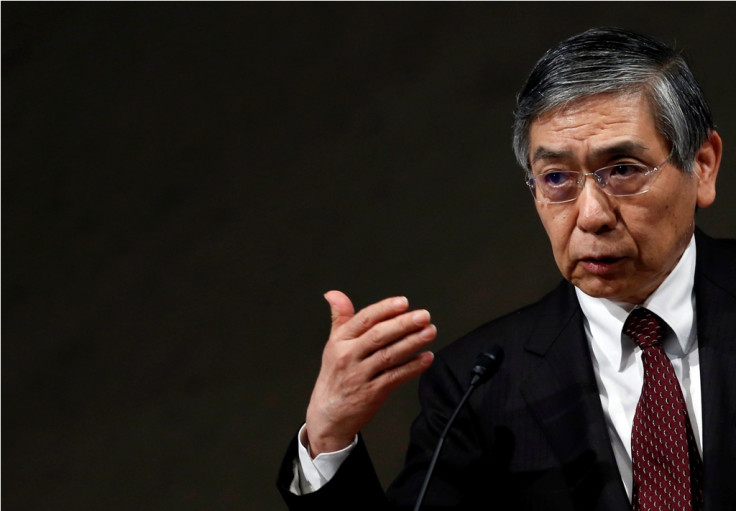Japan: Central Bank governor Haruhiko Kuroda believes recovery picking up

Japan's central bank believes that with capital expenditure growing and business sentiment improving, inflation is likely to reach the 2% target without need for more monetary easing.
In a statement issued ahead of governor Haruhiko Kuroda's briefing on 19 June, the Bank of Japan (BoJ) said it would increase base money at an annual pace of ¥ 80tn (£400bn; $650bn) through aggressive asset purchases.
"Exports are picking up and capital expenditure is rising moderately as a trend as corporate revenues improve," the BoJ said in a statement.
Housing investment also "appeared to be picking up," the Bank said.
Markets expect the BoJ to introduce some more quantitative easing again in October, reported Reuters. However, some investors have pushed back their forecasts for more action after the stronger-than-expected first-quarter growth figure.
"We have seen some slightly weak economic data recently, but this is not enough to derail the recovery," Shuji Tonouchi, senior fixed-income strategist at Mitsubishi UFJ Morgan Stanley Securities, told Reuters.
Monetary policy meetings cut to eight a year
Meanwhile, the Bank will cut the frequency of monetary policy meetings to eight a year as Kuroda revealed a change in communication policy, reported the Financial Times.
As well as cutting the annual number of meetings from 14 – itself an unusual arrangement - the BoJ said it would now publish the individual economic forecasts of each of its nine policy board members.
"While these changes will increase the transparency of the Bank's decision-making process, they are unlikely to sway members' views on the outlook for the economy and prices," Marcel Thieliant, Japan economist at Capital Economics in Singapore, told the FT.
"We remain convinced that more easing will be required before long as price pressures are unlikely to pick up as rapidly as policy-makers hope," he said.
© Copyright IBTimes 2025. All rights reserved.





















